Find Help
More Items From Ergsy search
-

Can I ask my neighbour to reposition their security camera?
Relevance: 100%
-
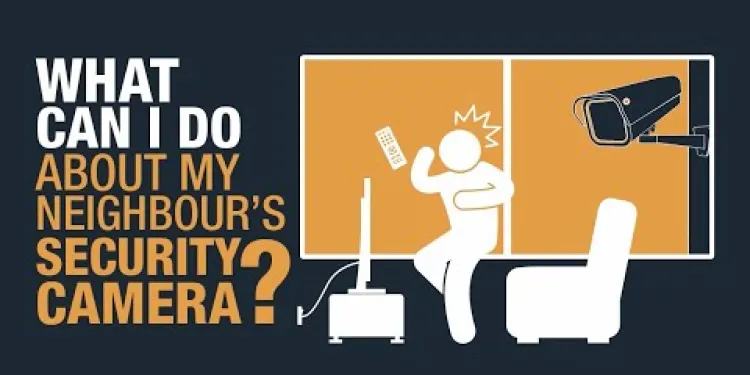
What can I do about my neighbour's security camera?
Relevance: 100%
-

What can I do about my neighbour's security camera?
Relevance: 98%
-
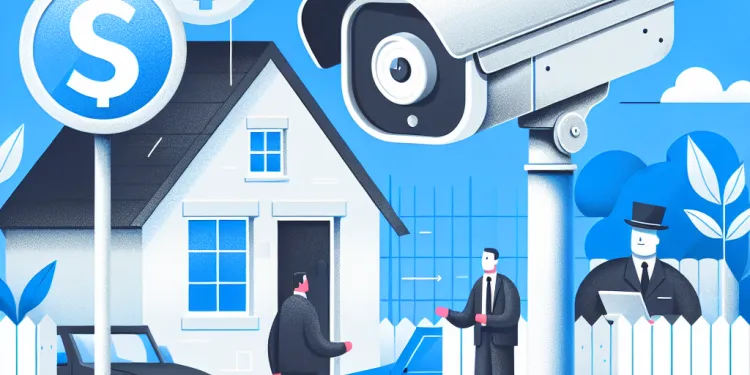
Is it legal for me to block the view of my neighbour's security camera?
Relevance: 98%
-
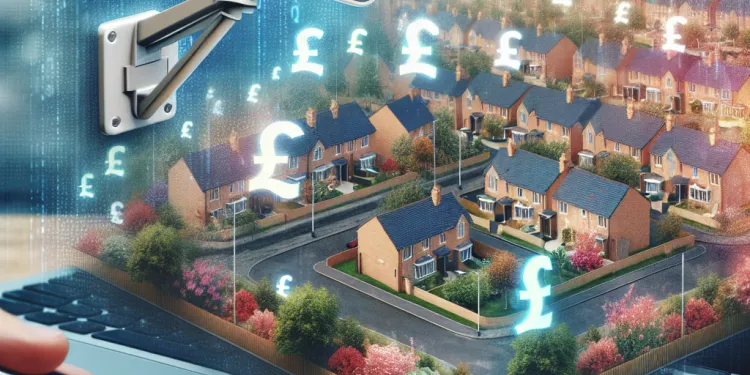
Is it legal for my neighbor to have a security camera facing my property?
Relevance: 94%
-
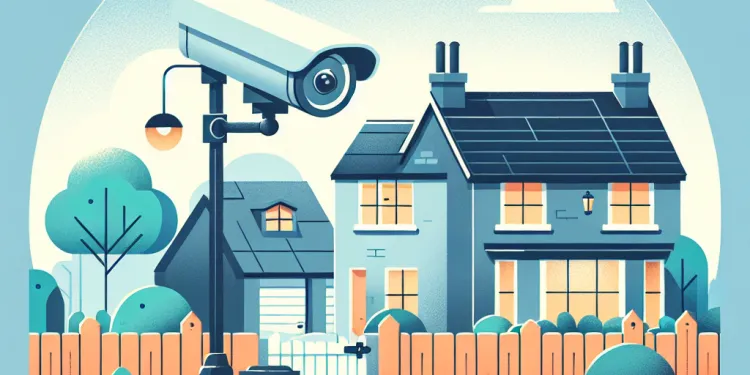
Can my neighbour legally point a security camera at my property?
Relevance: 94%
-
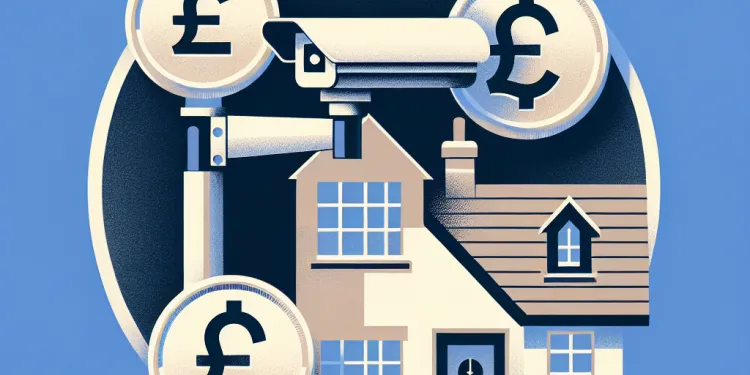
What if my neighbor claims the camera is for security but it points towards my property?
Relevance: 92%
-
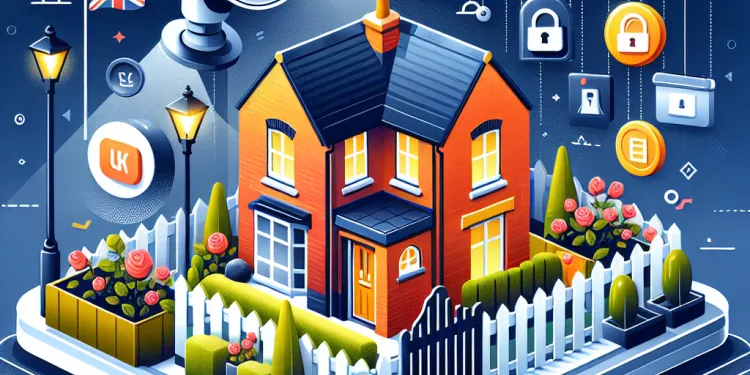
How can I stop my neighbour's security camera pointing at my property?
Relevance: 91%
-
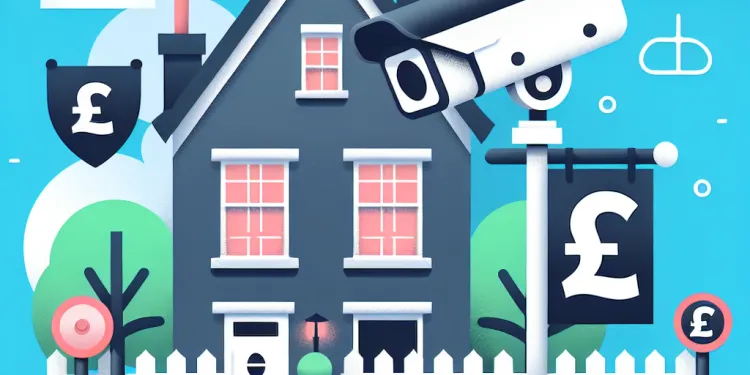
What steps can I take if my neighbour refuses to reposition their security camera?
Relevance: 90%
-
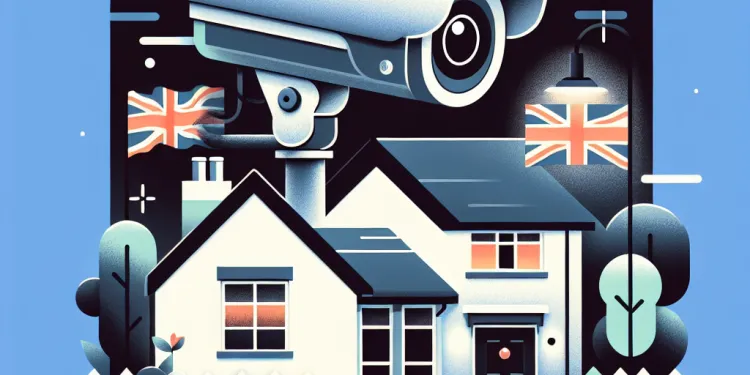
What should I do first if my neighbor's security camera is pointed at my property?
Relevance: 88%
-
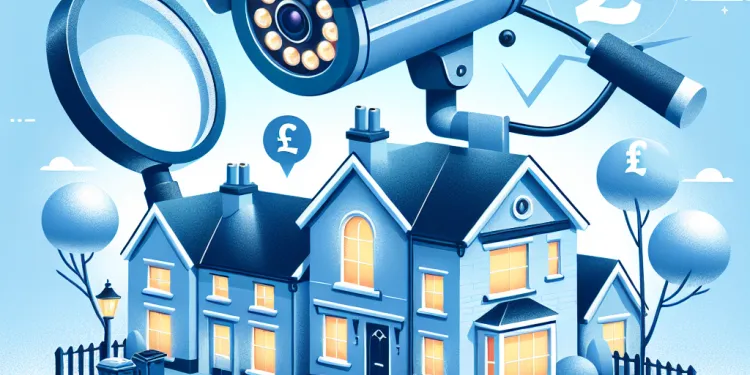
Can my neighbour use footage from their security camera as evidence in disputes?
Relevance: 81%
-
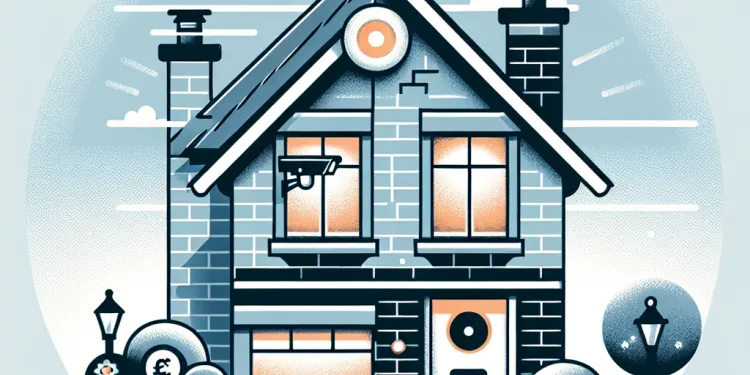
Do neighbours need to inform me if their cameras record my property?
Relevance: 78%
-
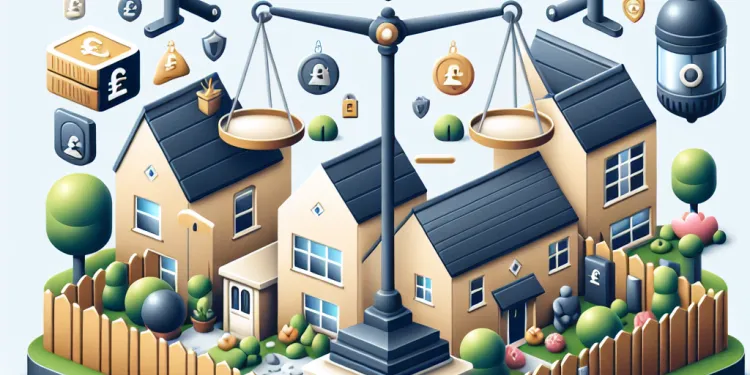
Are there privacy laws that protect me from neighbor's cameras?
Relevance: 78%
-

Can I block the view of my neighbor's camera with physical barriers?
Relevance: 74%
-

How can I disable my neighbour's security camera?
Relevance: 73%
-
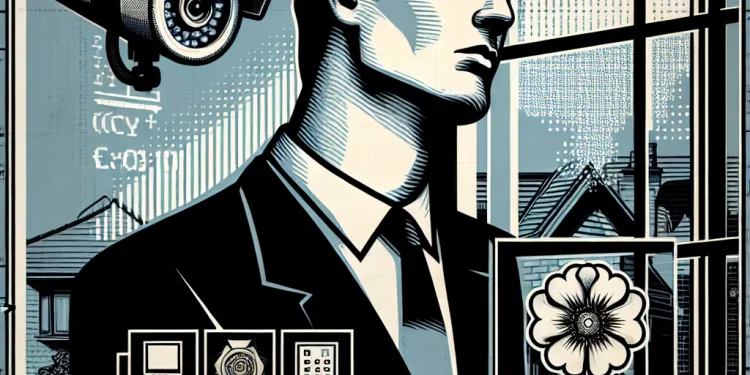
Should I contact the authorities if my neighbor refuses to adjust their camera?
Relevance: 73%
-
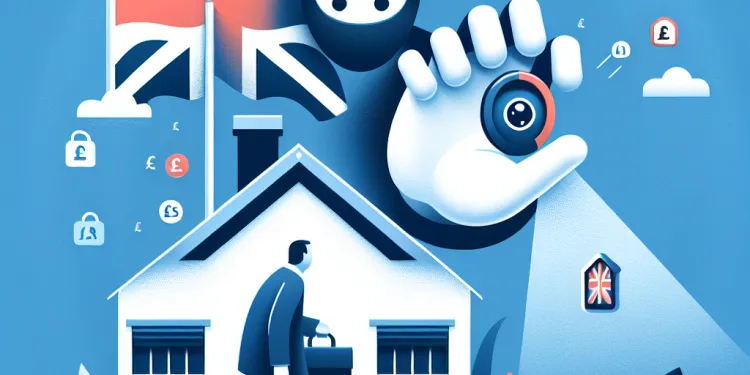
Can I ask for legal help to get my neighbor’s camera moved?
Relevance: 72%
-
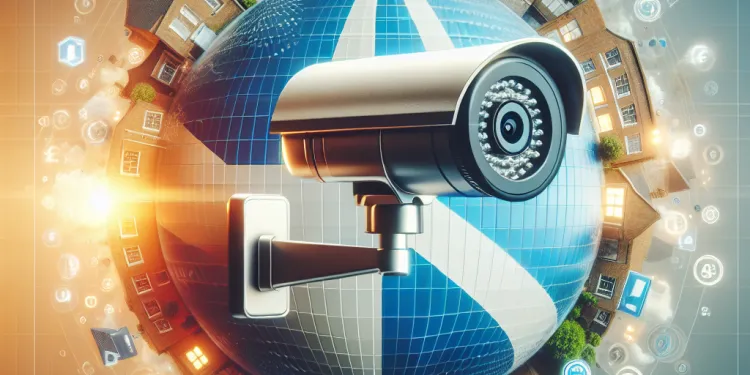
Is redirecting a security camera a solution?
Relevance: 72%
-

How can I tell if a security camera is pointing at my property?
Relevance: 72%
-

How secure is the Ring Doorbell Camera system?
Relevance: 63%
-
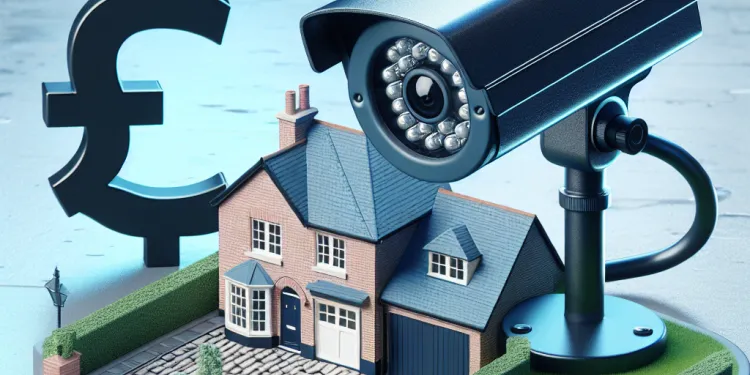
Is my concern valid if the camera is only monitoring my driveway?
Relevance: 63%
-
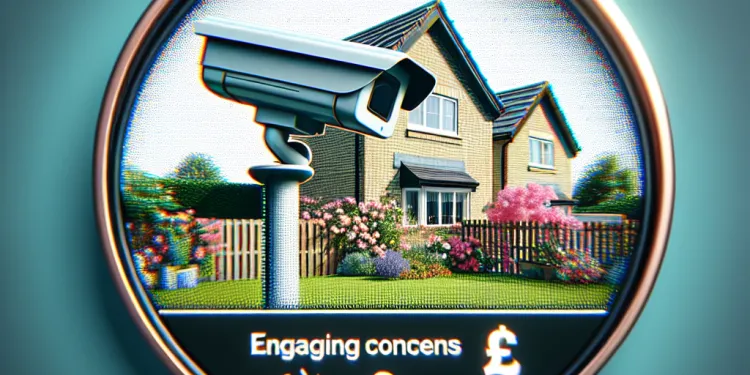
What should I do if I feel my privacy is being invaded by my neighbour's CCTV?
Relevance: 56%
-
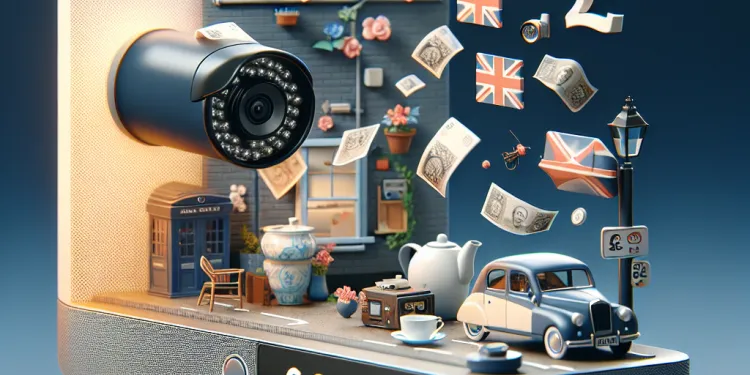
Can I install my own camera to monitor the area in question?
Relevance: 54%
-
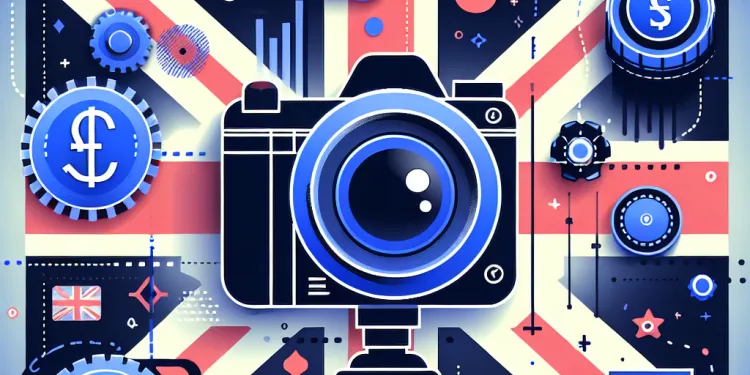
Is it advisable to discuss camera placement before it becomes an issue?
Relevance: 51%
-

What laws apply to the use of security cameras in the UK?
Relevance: 50%
-
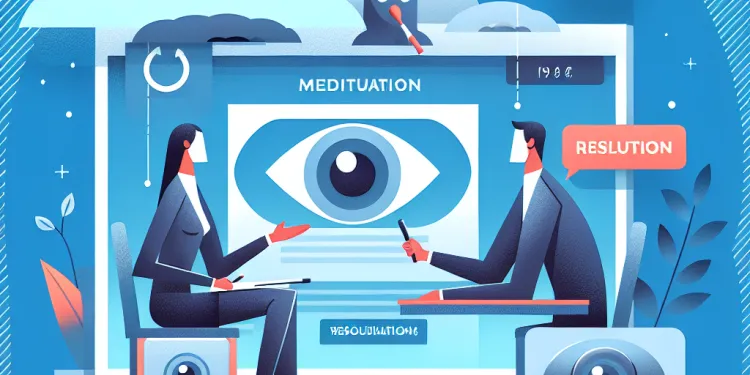
Are there any mediation services for resolving disputes over security cameras?
Relevance: 49%
-
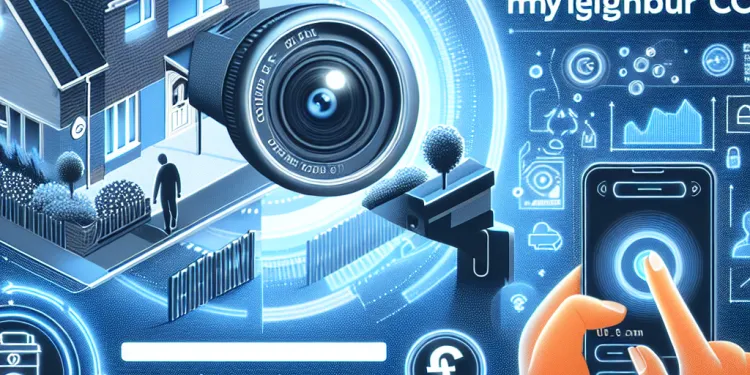
Can I request footage of myself from my neighbour's CCTV?
Relevance: 46%
-

What is my neighbour required to do under GDPR?
Relevance: 46%
-
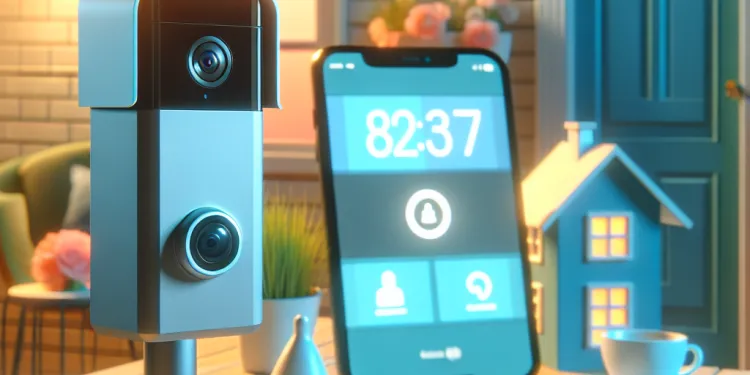
What happens if my Ring Doorbell Camera is stolen?
Relevance: 45%
-

Can the police access my neighbour’s CCTV footage without consent?
Relevance: 45%
-
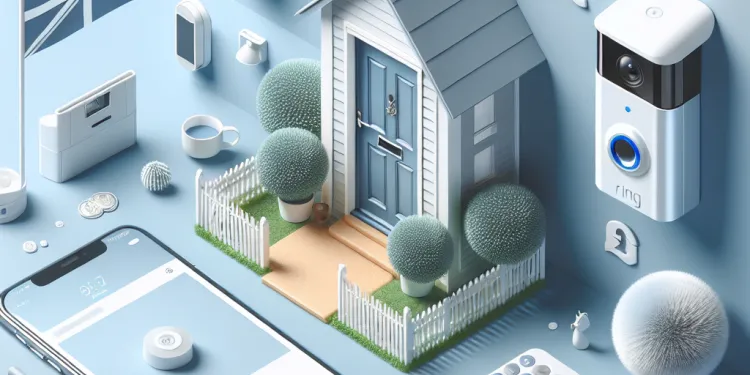
How do Ring Doorbell Cameras work?
Relevance: 44%
-
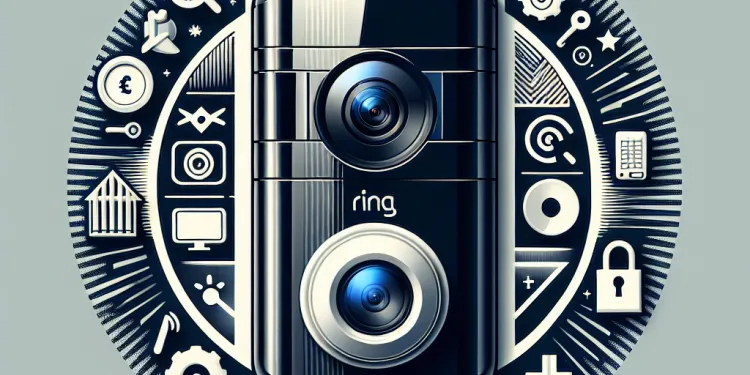
Is the video quality of a Ring Doorbell Camera good?
Relevance: 43%
-
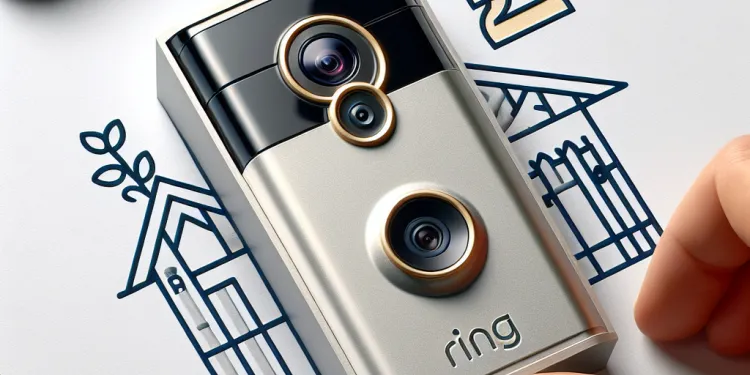
What is a Ring Doorbell Camera?
Relevance: 43%
-

Is it necessary to check on neighbors during a heatwave?
Relevance: 41%
-
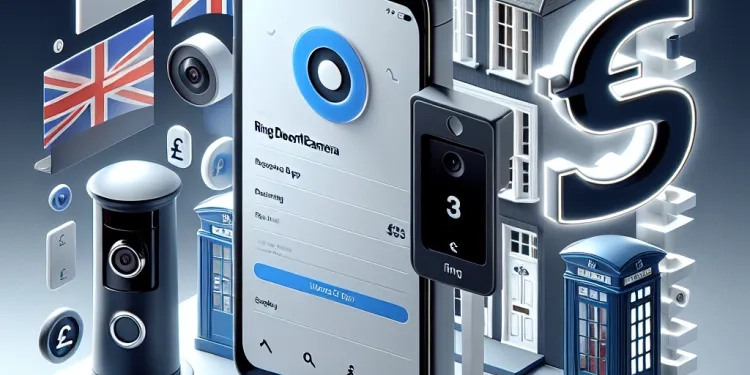
Is the Ring app necessary for using a Ring Doorbell Camera?
Relevance: 40%
-
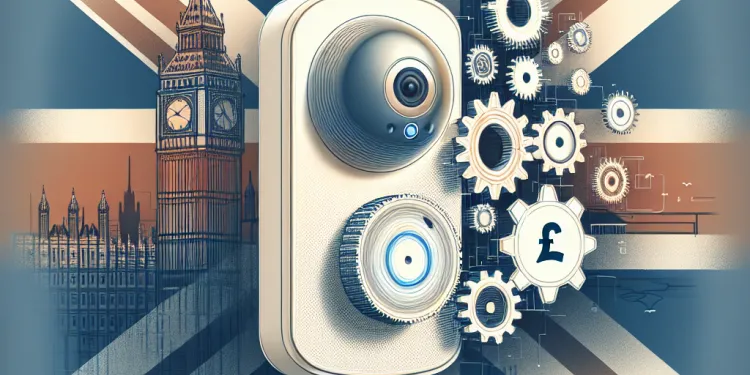
Can I customize motion detection on my Ring Doorbell Camera?
Relevance: 40%
-
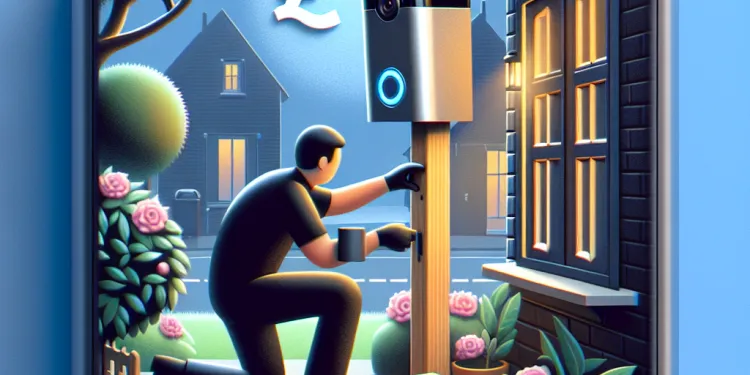
How do I install a Ring Doorbell Camera?
Relevance: 40%
-
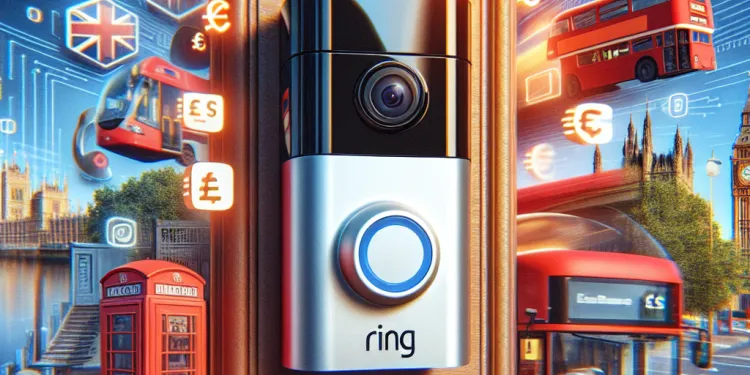
How does a Ring Doorbell Camera work?
Relevance: 40%
-
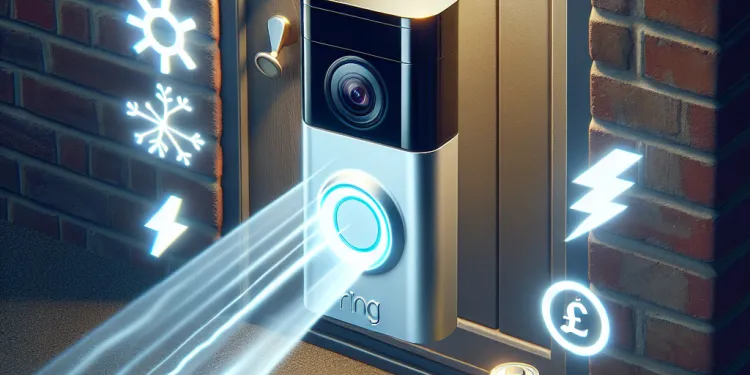
How does a battery-powered Ring Doorbell Camera work?
Relevance: 40%
-
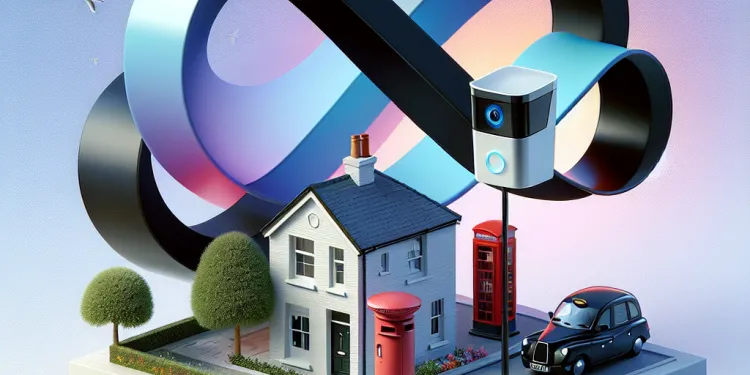
Can a Ring Doorbell Camera record continuously?
Relevance: 39%
What Can I Do About My Neighbour's Security Camera?
It's becoming increasingly common for homeowners to install security cameras around their property for added protection. However, these cameras can sometimes infringe on the privacy of neighbours. If you're dealing with a situation where your neighbour's security camera is pointing at your home, here are some steps you can take to address the issue.
Understand Your Rights
In the UK, data protection laws and privacy rights are designed to safeguard individuals from intrusive surveillance. The General Data Protection Regulation (GDPR) and the Data Protection Act 2018 may apply if your neighbour’s security system is capturing images or videos of your private property. Familiarize yourself with these laws to understand your rights in such scenarios. The Information Commissioner's Office (ICO) is a useful resource for understanding how these laws apply to domestic CCTV use.
Communicate with Your Neighbour
The first step in resolving any dispute is open communication. Approach your neighbour and discuss your concerns politely. They might not be aware that their camera is infringing on your privacy. By expressing your unease and explaining how it affects your privacy, you might come to a mutual understanding. Often, a neighbour will be willing to adjust the camera to focus only on their own property.
Seek Mediation
If direct communication does not resolve the issue, consider mediation. Community mediation services can provide neutral ground for discussion and help negotiate a solution without escalating the situation. Local councils or citizens' advice bureaus often offer or can recommend mediation services.
Legal Action and ICO Complaints
If all else fails and you continue to feel that your privacy is being invaded, you might need to take further action. You can file a complaint with the ICO if you believe your privacy rights under the data protection laws are being violated. As a last resort, consult with a solicitor to explore potential legal actions, such as seeking an injunction to have the camera repositioned or removed.
Implement Your Own Privacy Measures
While resolving the issue with your neighbour is ideal, you can also take personal steps to safeguard your privacy. Consider installing privacy screens, using landscaping to block the view, or drawing curtains in affected areas. These measures can provide immediate relief while you work on resolving the underlying issue.
By understanding your rights and exploring various avenues for resolution, you can address concerns about a neighbour's security camera effectively and respectfully.
What Can I Do About My Neighbour's Security Camera?
More people are using cameras to keep their homes safe. But sometimes, these cameras can look into other people's homes. If your neighbour has a camera pointed at your house, here is what you can do.
Know Your Rights
In the UK, there are laws to protect your privacy. These laws can help if your neighbour's camera shows your home. The General Data Protection Regulation (GDPR) and the Data Protection Act 2018 are such laws. You can learn more about them from the Information Commissioner's Office (ICO). This will help you know what you can do.
Talk to Your Neighbour
The first thing to do is talk to your neighbour. Be nice and tell them why you are worried. They might not know their camera bothers you. By talking, you might agree on a solution. Many neighbours will change the camera to look only at their own property.
Try Mediation
If talking does not help, try mediation. Mediation is when a neutral person helps you and your neighbour talk. Local councils or citizen advice groups can suggest mediation services. This can help solve the problem without making it worse.
Legal Help and Complaints
If nothing works and you still feel your privacy is invaded, you might need more help. You can tell the ICO if you think your privacy rights are not respected. As a last option, speak to a lawyer. They can tell you if you can take legal action to have the camera moved or removed.
Protect Your Privacy
While working on the problem, protect your privacy. You can use screens, plants, or curtains to block the view. These can help you feel better while you sort the issue with your neighbour.
By knowing your rights and trying different ways to solve the problem, you can deal with your neighbour's camera in a good and respectful way.
Frequently Asked Questions
Can my neighbour legally point a security camera at my property?
In the UK, your neighbour can use security cameras, but they must respect privacy laws. If the camera captures images beyond the boundary of their property, such as your garden or driveway, they must comply with data protection laws and ensure the use is justified.
What laws apply to the use of security cameras in the UK?
The use of security cameras in the UK is governed by the Data Protection Act 2018, GDPR, and the Human Rights Act. Homeowners must not infringe upon your privacy without good reason.
What should I do if I feel my privacy is being invaded by my neighbour's CCTV?
Firstly, try to discuss your concerns with your neighbour directly. They may not be aware of the impact their CCTV has on you. If this does not resolve the issue, you can contact the Information Commissioner's Office (ICO) for further advice.
How can I tell if a security camera is pointing at my property?
Physically observe the camera's positioning, and see if its lens is directed towards your property. Some cameras have visible red lights indicating they're recording. If unsure, politely ask your neighbour about its coverage.
Can I ask my neighbour to reposition their security camera?
Yes, if the camera is pointing towards your property and making you uncomfortable, you can politely ask your neighbour to adjust its position to respect your privacy.
What steps can I take if my neighbour refuses to reposition their security camera?
If talking to your neighbour doesn’t work, you can contact your local council or community mediation services. They may help resolve the issue. As a last resort, consider legal advice to understand your rights.
Is it legal for me to block the view of my neighbour's security camera?
While it's understandable to want to protect your privacy, physically obstructing a camera may lead to disputes. It's best to seek a peaceful resolution through discussion or mediation.
Do neighbours need to inform me if their cameras record my property?
If the camera captures part of your property, under data protection laws, they should inform you and provide a legitimate reason. They should also put up a clear sign indicating surveillance.
Can I request footage of myself from my neighbour's CCTV?
Under data protection law, you have the right to request copies of footage that features you. You can make a Subject Access Request to obtain this footage. The owner of the camera must respond within one month.
What role does the Information Commissioner’s Office (ICO) play in these disputes?
The ICO can provide advice and investigate complaints related to data protection breaches. You can contact them if your neighbour’s use of CCTV does not comply with data protection laws.
Does the ICO have the power to take action against my neighbour?
If your neighbour fails to comply with data protection laws, the ICO can take action against them, which includes fines or enforcement notices. However, their first step is usually to guide and encourage compliance.
Are there any mediation services for resolving disputes over security cameras?
Yes, community mediation services can help resolve disputes amicably. They offer impartial mediators to facilitate discussions and help both parties reach a satisfactory agreement.
Can my neighbour use footage from their security camera as evidence in disputes?
Yes, CCTV footage can be used as evidence in legal disputes if it has been obtained legally and ethically. The footage must show a legitimate interest and comply with data protection laws.
What is my neighbour required to do under GDPR?
Under GDPR, if your neighbour’s camera captures footage beyond their property boundary, they must justify the use, inform you about it, and manage access and storage of the footage responsibly.
Can the police access my neighbour’s CCTV footage without consent?
The police can request CCTV footage if needed for an investigation. In these cases, your neighbour would be obliged to provide the footage if it can assist in solving a crime.
Is it okay for my neighbour to aim a security camera at my home?
In the UK, your neighbor can use security cameras. But they must follow the privacy rules. If the camera sees your yard or driveway, they must follow data protection rules and explain why they need to use the camera.
What rules are there for using security cameras in the UK?
If you want to use security cameras in the UK, you need to follow some rules. It helps to keep everyone safe and respect their privacy.
Some tips to understand the rules:
- Read or ask for easy guides about using cameras.
- Watch short videos that explain the camera rules simply.
- Ask a friend or an adult to explain the rules to you.
These steps can help you learn what is okay to do with security cameras.
The rules for using security cameras in the UK come from the Data Protection Act 2018, GDPR, and the Human Rights Act. People must have a good reason if a camera at their home can see you.
What can I do if my neighbor’s camera is watching me?
If you think your neighbor’s camera is looking at you, here are some easy steps to help:
- Talk to your neighbor. Tell them how you feel.
- Ask if they can move the camera.
- If talking doesn’t help, you can ask an adult you trust for advice.
- You can also use helpful tools like noise-canceling headphones or privacy screens for windows.
If you are still worried or need more help, you can ask someone at a community center or the police for advice.
First, talk to your neighbor about your worries. They might not know their camera bothers you. If the problem doesn't go away, ask the Information Commissioner's Office (ICO) for help.
How can I know if a security camera is looking at my home?
Look at the camera and see where it is pointing. Is it pointing at your house? Some cameras have small red lights that mean they are recording. If you are not sure, kindly ask your neighbour where the camera looks.
Can I talk to my neighbour about moving their security camera?
If your neighbour's camera is pointing at your house and it makes you feel uncomfortable, you can ask them nicely to change where it is looking. This way, your privacy is respected.
What can I do if my neighbor won't move their security camera?
Here are some steps you can try:
- Talk to your neighbor: Have a friendly chat with them. Tell them why you want the camera moved.
- Write a letter: If talking doesn't work, send a polite letter. Explain your worries and ask them to move it.
- Get help: Ask someone you both know to help talk about the problem.
- Know your rights: Check the rules about privacy where you live.
- Ask for advice: Talk to a community advice center for more help.
Special tools can help with reading:
- Text-to-speech: Tools that read words out loud to you.
- Dictionary apps: Apps that help you understand hard words.
If speaking to your neighbour doesn’t help, you can ask your local council or community mediation services for help. They can help fix the problem. If nothing else works, you can talk to a lawyer to know what you can do legally.
Can I cover my neighbor's security camera?
You should talk to your neighbor first. Ask them nicely if they can move the camera.
If you are unhappy, you can ask a trusted adult for help.
Some people talk to a person who knows the law. This person is called a lawyer.
It's okay to want to keep your privacy safe. But blocking a camera might cause problems. It's better to talk it out or ask someone to help you both agree.
Do my neighbors need to tell me if their cameras can see my home?
If a camera can see your property, the owner must tell you. They need a good reason. They should also put up a sign to say the camera is there.
Can I ask my neighbor for a video of me from their CCTV?
You have the right to ask for videos that show you. This is part of data protection rules. You can ask for these videos by making a special type of request called a Subject Access Request. The person who owns the camera has one month to give you the videos.
What does the Information Commissioner’s Office (ICO) do in these arguments?
The Information Commissioner’s Office (ICO) is a group that helps with arguments about information. They make sure people follow the rules about sharing information. If there is a problem, the ICO can help fix it. They are like a referee in a game.
If you want, you can ask other people to help you understand more. You can use pictures or videos to learn too.
The ICO is a group that helps with problems about data protection. They can give advice and look into complaints. If your neighbor is using CCTV and not following the rules, you can talk to them.
Can the ICO do something about my neighbour?
The ICO helps people with data problems. If your neighbour is doing something wrong with information about you, the ICO might help. They can tell your neighbour to stop or change what they are doing.
If you are not sure, you can talk to someone at the ICO. They are nice and can explain what they can do. You can also ask a grown-up to help you talk to them.
Remember, it is okay to ask for help if you need it.
If your neighbor does not follow the rules about keeping information private, a group called the ICO can help. The ICO can tell them to fix things or even make them pay money as a fine. But usually, the ICO tries to help by showing them how to do it right first.
Can someone help if people disagree about security cameras?
If people are having a problem because of security cameras, they can talk it out and find a solution. There are people who can help everyone to agree. They are called mediation services. A mediator listens to both sides and helps people find a way to fix the problem. This can make things fair and friendly. To get help, you can look for local mediation services online or ask for help at your community center.
Yes, community mediation services can help people who are arguing. They have fair helpers called mediators. These helpers talk to both sides to help them stop fighting and find a solution that makes everyone happy.
Can my neighbor use their security camera videos to solve arguments?
Your neighbor might use videos from their security camera in an argument. This can happen if something happened near their home.
Here are some tips to help you:
- If you're unsure, ask a grown-up or a friend to help you understand.
- Use pictures or drawings to see what is happening better.
- Talking is a good way to solve problems first.
Yes, we can use video from CCTV cameras to help in court if it was taken the right way. The video should be important and follow the rules about keeping people’s information safe.
What must my neighbour do for GDPR?
If your neighbor's camera can see more than just their own yard, they need to have a good reason. They should tell you about it. They also need to take care of how they keep and use the video.
You can use tools like captions and speech-to-text to help understand this better.
Can the police see my neighbour's CCTV video without asking?
The police might be able to see the CCTV video from your neighbour's camera. Sometimes they need to ask first, but sometimes they don't have to. It can depend on the situation.
If you have questions or feel worried, you can:
- Ask a trusted adult for help.
- Talk to a local community officer.
- Look for more information online with help from a grown-up.
The police can ask to see CCTV videos if they need it for their work. If this happens, your neighbour must share the videos if it can help solve a crime.
Useful Links
This website offers general information and is not a substitute for professional advice.
Always seek guidance from qualified professionals.
If you have any medical concerns or need urgent help, contact a healthcare professional or emergency services immediately.
- Ergsy carfully checks the information in the videos we provide here.
- Videos shown by Youtube after a video has completed, have NOT been reviewed by ERGSY.
- To view, click the arrow in centre of video.
- Most of the videos you find here will have subtitles and/or closed captions available.
- You may need to turn these on, and choose your preferred language.
- Go to the video you'd like to watch.
- If closed captions (CC) are available, settings will be visible on the bottom right of the video player.
- To turn on Captions, click settings .
- To turn off Captions, click settings again.
More Items From Ergsy search
-

Can I ask my neighbour to reposition their security camera?
Relevance: 100%
-

What can I do about my neighbour's security camera?
Relevance: 100%
-

What can I do about my neighbour's security camera?
Relevance: 98%
-

Is it legal for me to block the view of my neighbour's security camera?
Relevance: 98%
-

Is it legal for my neighbor to have a security camera facing my property?
Relevance: 94%
-

Can my neighbour legally point a security camera at my property?
Relevance: 94%
-

What if my neighbor claims the camera is for security but it points towards my property?
Relevance: 92%
-

How can I stop my neighbour's security camera pointing at my property?
Relevance: 91%
-

What steps can I take if my neighbour refuses to reposition their security camera?
Relevance: 90%
-

What should I do first if my neighbor's security camera is pointed at my property?
Relevance: 88%
-

Can my neighbour use footage from their security camera as evidence in disputes?
Relevance: 81%
-

Do neighbours need to inform me if their cameras record my property?
Relevance: 78%
-

Are there privacy laws that protect me from neighbor's cameras?
Relevance: 78%
-

Can I block the view of my neighbor's camera with physical barriers?
Relevance: 74%
-

How can I disable my neighbour's security camera?
Relevance: 73%
-

Should I contact the authorities if my neighbor refuses to adjust their camera?
Relevance: 73%
-

Can I ask for legal help to get my neighbor’s camera moved?
Relevance: 72%
-

Is redirecting a security camera a solution?
Relevance: 72%
-

How can I tell if a security camera is pointing at my property?
Relevance: 72%
-

How secure is the Ring Doorbell Camera system?
Relevance: 63%
-

Is my concern valid if the camera is only monitoring my driveway?
Relevance: 63%
-

What should I do if I feel my privacy is being invaded by my neighbour's CCTV?
Relevance: 56%
-

Can I install my own camera to monitor the area in question?
Relevance: 54%
-

Is it advisable to discuss camera placement before it becomes an issue?
Relevance: 51%
-

What laws apply to the use of security cameras in the UK?
Relevance: 50%
-

Are there any mediation services for resolving disputes over security cameras?
Relevance: 49%
-

Can I request footage of myself from my neighbour's CCTV?
Relevance: 46%
-

What is my neighbour required to do under GDPR?
Relevance: 46%
-

What happens if my Ring Doorbell Camera is stolen?
Relevance: 45%
-

Can the police access my neighbour’s CCTV footage without consent?
Relevance: 45%
-

How do Ring Doorbell Cameras work?
Relevance: 44%
-

Is the video quality of a Ring Doorbell Camera good?
Relevance: 43%
-

What is a Ring Doorbell Camera?
Relevance: 43%
-

Is it necessary to check on neighbors during a heatwave?
Relevance: 41%
-

Is the Ring app necessary for using a Ring Doorbell Camera?
Relevance: 40%
-

Can I customize motion detection on my Ring Doorbell Camera?
Relevance: 40%
-

How do I install a Ring Doorbell Camera?
Relevance: 40%
-

How does a Ring Doorbell Camera work?
Relevance: 40%
-

How does a battery-powered Ring Doorbell Camera work?
Relevance: 40%
-

Can a Ring Doorbell Camera record continuously?
Relevance: 39%


